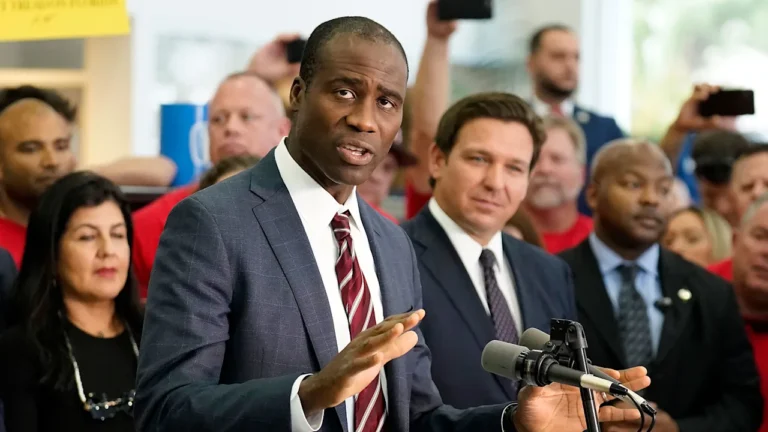Kevin Hannegan
- Kevin Hannegan, 53, has been job hunting for 14 months after a layoff in 2024.
- He’s cut costs and picked up side jobs like DoorDash in an effort to stay afloat financially.
- The Gen Xer is among the Americans struggling to find work amid a white-collar hiring slowdown.
This as-told-to essay is based on a conversation with Kevin Hannegan, a 53-year-old former director at a publishing company in North Carolina. It has been edited for length and clarity.
I watched layoffs happen during many of the 18 years I worked as a director at a publishing company. In January 2024, I finally got the call: hundreds of us had been let go this time, including me.
My employment didn’t end until April, so I had a few months to prepare to leave. I still showed up every day and did my job. When my last day finally came, it was surreal. I’d worked since the age of 15, and now all of a sudden I wasn’t working.
I began looking for work and never applied for unemployment benefits. I thought, I’ve got experience, knowledge, and transferable skills — somebody will want to hire me.
The reality has been far tougher than I ever expected.
I’ve applied to hundreds of jobs so far
I began my job hunt by focusing on the education and publishing sectors, but I’ve since expanded my search to various operations, marketing, and procurement roles.
I’ve worked with three job coaches and tapped into every networking resource I can think of — but I’m still struggling to find work. I’m trying to stay afloat financially by cutting costs, doing gig work, and picking up odd jobs — but each month, I still have to figure out how I’m going to cover everything.
Cutting costs
When you first get laid off, people say, “Take a vacation, go camping.” I don’t want to spend my money on those things. I need to get a job.
I received a few months of severance, and thankfully, I’ve done OK financially over the years. However, that doesn’t mean my savings are unending, and I’m concerned about my COBRA health insurance ending later this year.
To save money, my family of four has cut out extras and scaled back our spending wherever we can. We’ve dropped TV subscriptions like Netflix and AppleTV and stopped giving gifts for our anniversary or birthdays. I’ve been shopping more carefully when I go to the grocery store — I buy no-name chips and off-brand products.
I’m also able to do some of my own car maintenance, including changing the brake pads on one car and replacing the thermostat on another. A little knowledge from YouTube saved us hundreds of dollars.
Picking up side gigs
To make some money, I’ve been helping a friend with his business — sending marketing emails and getting a small commission on any sales. It’s not much, but every bit helps.
I’ve also been driving for DoorDash for a few hours in the evenings. My goal is to earn about $20 to $25 per hour, but there are nights when that just doesn’t happen, and I earn around $15 an hour.
I also do odd jobs — including fixing deck boards, changing out ceiling fans, helping friends move, doing yard work, and even helping a buddy build saunas for his business. While I sometimes help out for free, friends often pay me because they know I’m trying to stay afloat.
Recently, I landed a part-time job at the Lenovo Center in Raleigh. I work on the changeover crew, helping reset the arena between events. It’s entirely different from what I’ve done before, but it might be a nice change.
I’m not making anything close to the low-six-figure salary I had in my last job, but I’m doing what I can to get by.
Job coaches and networking strategies
I’ve worked with a few job coaches. One was through an outplacement service my company offered — they reviewed my résumé and told me to incorporate keywords from the job description into my cover letter. I met the others through my church’s monthly career ministry meetings.
Each job coach gives slightly different advice. Some say put in the years you worked for past employers, others say don’t list the year you graduated from college. Some say get your résumé down to one page, some say two is OK.
I’ve also volunteered with groups like Habitat for Humanity and Special Olympics. In some ways, volunteering has been a networking opportunity, and I’ve received some ideas for strategies to pursue.
I’ve found that face-to-face meetings at job fairs or networking events make a big difference. I’ve also found that asking people about their roles or companies, rather than just focusing on myself, can lead to a deeper connection.
While some of these strategies have been helpful, they haven’t gotten me across the finish line.
I’m more than my résumé
When I apply for jobs, I suspect there’s often someone in HR thinking, He’s older. He doesn’t have tech skills. He wants a high salary. He’s going to retire soon. I would counter that.
I was loyal to my company for 18 years. I’m not looking for the next rung on the ladder — I just want to work. I might even stay longer than some younger employees, some of whom change jobs every few years.
What I am on a piece of paper doesn’t tell the full story. Years ago, you could drop off a résumé at an office and have a conversation right there. Today, the résumé seems to be everything. If you don’t hit the right keywords, the AI-powered applicant tracking systems might filter you out.
Retirement could be sooner than I thought
I get that companies are busy, but the hiring process needs an overhaul. Many of us are out here raising our hands — applying, praying, hoping, and begging for a chance to work.
I’ve always considered retirement a distant future, but I’ve started wondering if I could ease into it by continuing to work various odd jobs.
I’m not ready to fully retire yet, so I’ll keep applying for roles that seem interesting or align with my skills. After struggling this much to find full-time work, I’ve accepted that part-time opportunities might be the best fit for me.

